The great outdoors just got a whole lot greater with the release of David Trubridge’s…

What’s one thing (okay, two things) all wakaNINE lighting lines have in common? Supportive work conditions and an ethos for saving the environment. Let’s take a look at some of the ways all of our partners have embraced a love for both the people they work with and the planet we inhabit.
ETHICAL LABOR AND MANUFACTURING PRACTICES
wakaNINE isn’t giving away lighting fixtures, but you can trust the lines we represent give back to their local communities. These are companies with conscience and lead by example, acting ethically to set a positive tone. There is an overall benevolent approach of helping people in the workplace.
Stephen Pikus
Take Stephen Pikus for example. His “one-of-a-kind” handmade chandeliers are custom-crafted in South Africa by his dedicated team of former felons turned artisans. Stephen Pikus champions the rights and well-being of the workers as part of his moral philosophy. He is an artist and altruist and believes in giving people second chances by employing those that were formerly incarcerated. Pikus trains his workers and by doing so, changes their lives, and gives these workers the ability to make a positive social impact.
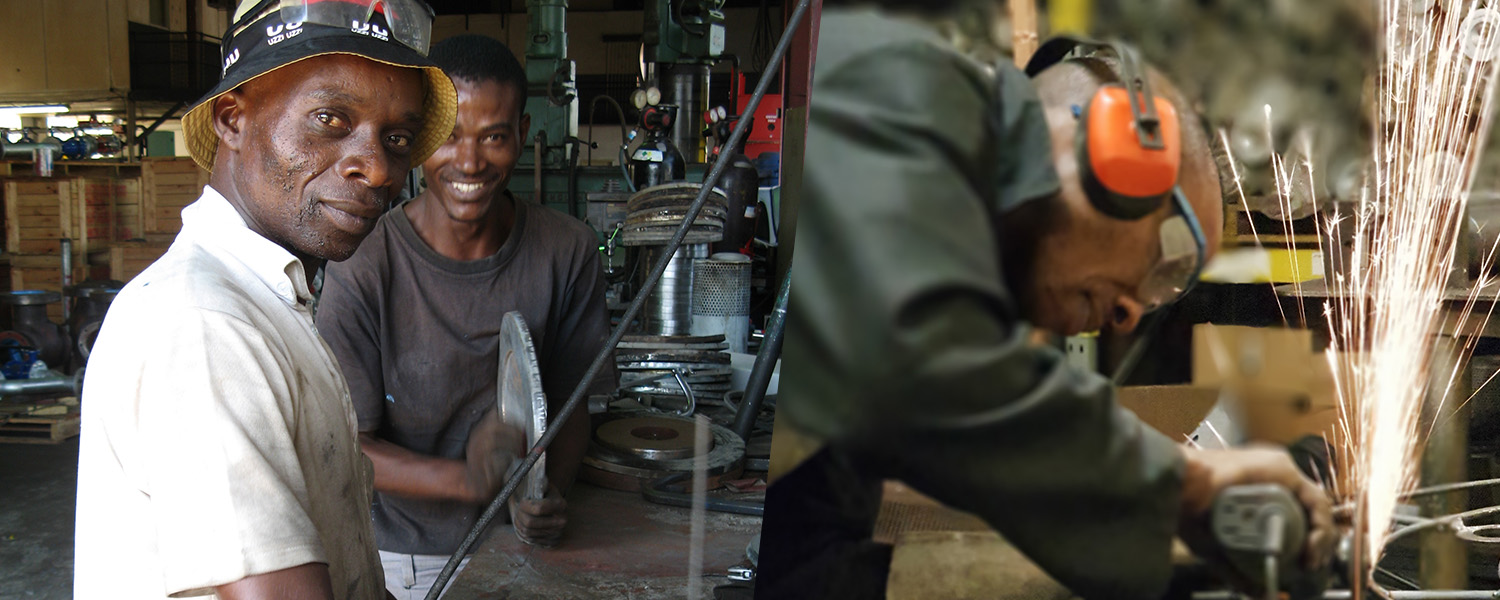
"The level of commitment and heart that a team member shows toward the business that puts food on their table, is the same commitment I show them. When I started this 5 years ago, I used to go to the dump yards, open people's trash bags and look for glass bottles. Today we work on the same principle (except nobody has had to dig through trash to find glass - except me) and whoever wants to join the team starts at the beginning. Our team often refers to us as a family and I think therein lies the reason we have almost zero staff churn.
For me, one of the most important things I can do for my team financially, is to encourage each of the guys to start a side hustle I can help support. i.e. I sponsored one worker, Victor, with what was needed in order to start a small informal Tuck Shop and food business which his wife now runs."
- Stephen Pikus, Owner + Designer
"The level of commitment and heart that a team member shows toward the business that puts food on their table, is the same commitment I show them. When I started this 5 years ago, I used to go to the dump yards, open people's trash bags and look for glass bottles. Today we work on the same principle (except nobody has had to dig through trash to find glass - except me) and whoever wants to join the team starts at the beginning. Our team often refers to us as a family and I think therein lies the reason we have almost zero staff churn.
For me, one of the most important things I can do for my team financially, is to encourage each of the guys to start a side hustle I can help support. i.e. I sponsored one worker, Victor, with what was needed in order to start a small informal Tuck Shop and food business which his wife now runs."
- Stephen Pikus, Owner + Designer
The second chances don’t stop here. Stephen Pikus Design products are handmade from upcycled would-be-landfill materials such as glass or industrial waste such as car filters. These recycled materials reimagined as functional art are the gateway toward a sustainable environment and Pikus has been recognized in South Africa as a maverick in the sustainable movement.
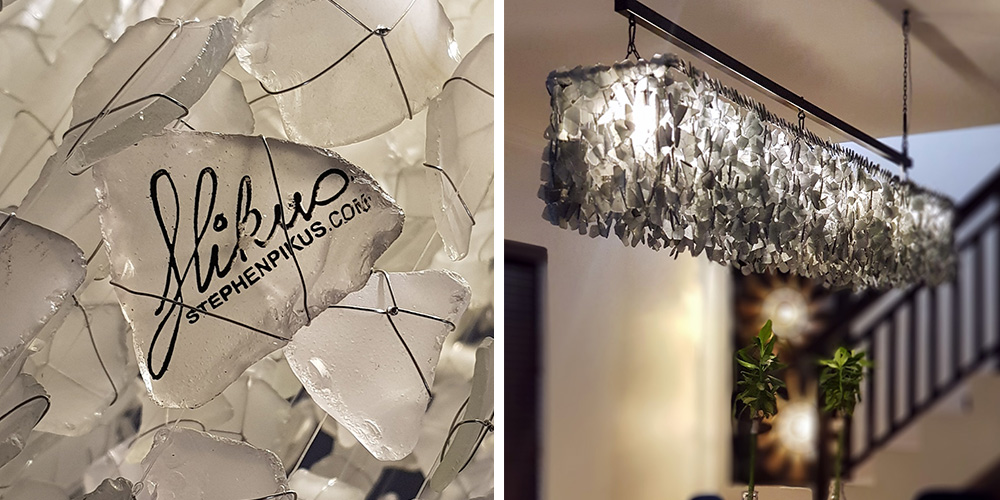
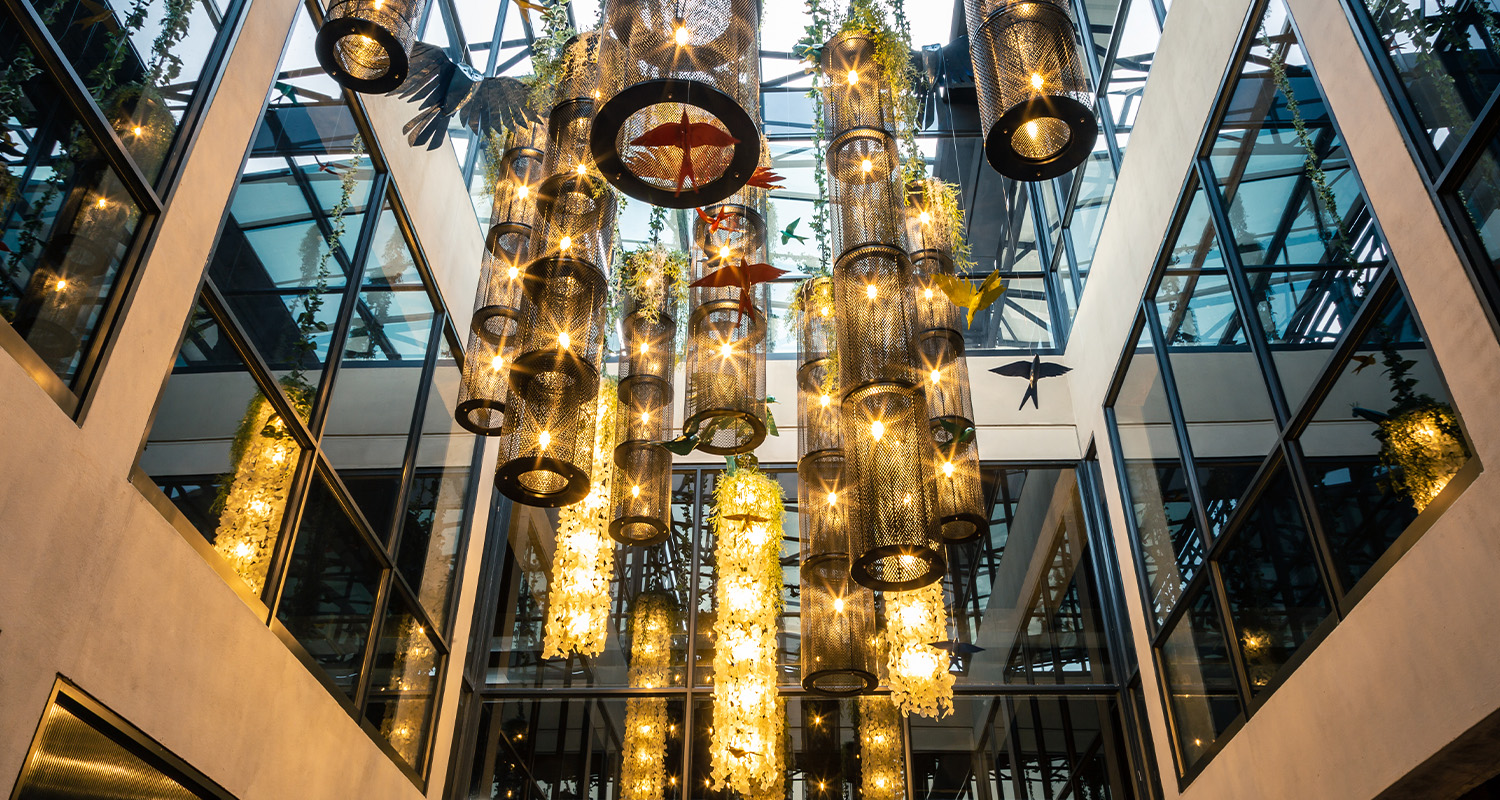
David Trubridge Designs
Since the beginning, in 1995, David Trubridge Ltd has welcomed interns through its doors as part of its International Design Intern Program. Over 50 graduates from all corners of the Earth have worked for the company, being paid a fair stipend to help around the business and flex their skills in its design studio. David sees it as a way to nurture the next generation of designers, imparting what wisdom he has garnered and encouraging a path of originality. Interns experience transparent knowledge into every aspect of running a studio; from finances to production, and the generation of ideas/style. Once the pandemic has eased the company is looking forward to accepting them in again. (Due to the pandemic, they only have New Zealand based interns.)
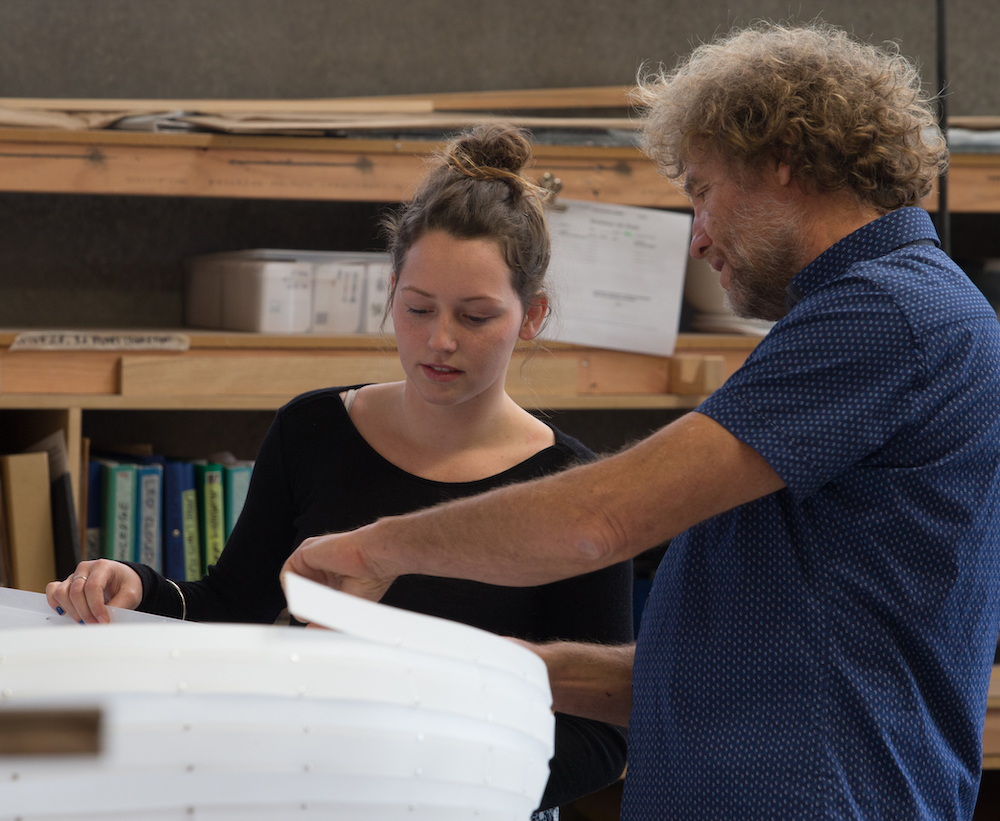
Since the beginning, in 1995, David Trubridge Ltd has welcomed interns through its doors as part of its International Design Intern Program. Over 50 graduates from all corners of the Earth have worked for the company, being paid a fair stipend to help around the business and flex their skills in its design studio. David sees it as a way to nurture the next generation of designers, imparting what wisdom he has garnered and encouraging a path of originality. Interns experience transparent knowledge into every aspect of running a studio; from finances to production, and the generation of ideas/style. Once the pandemic has eased the company is looking forward to accepting them in again. (Due to the pandemic, they only have New Zealand based interns.)

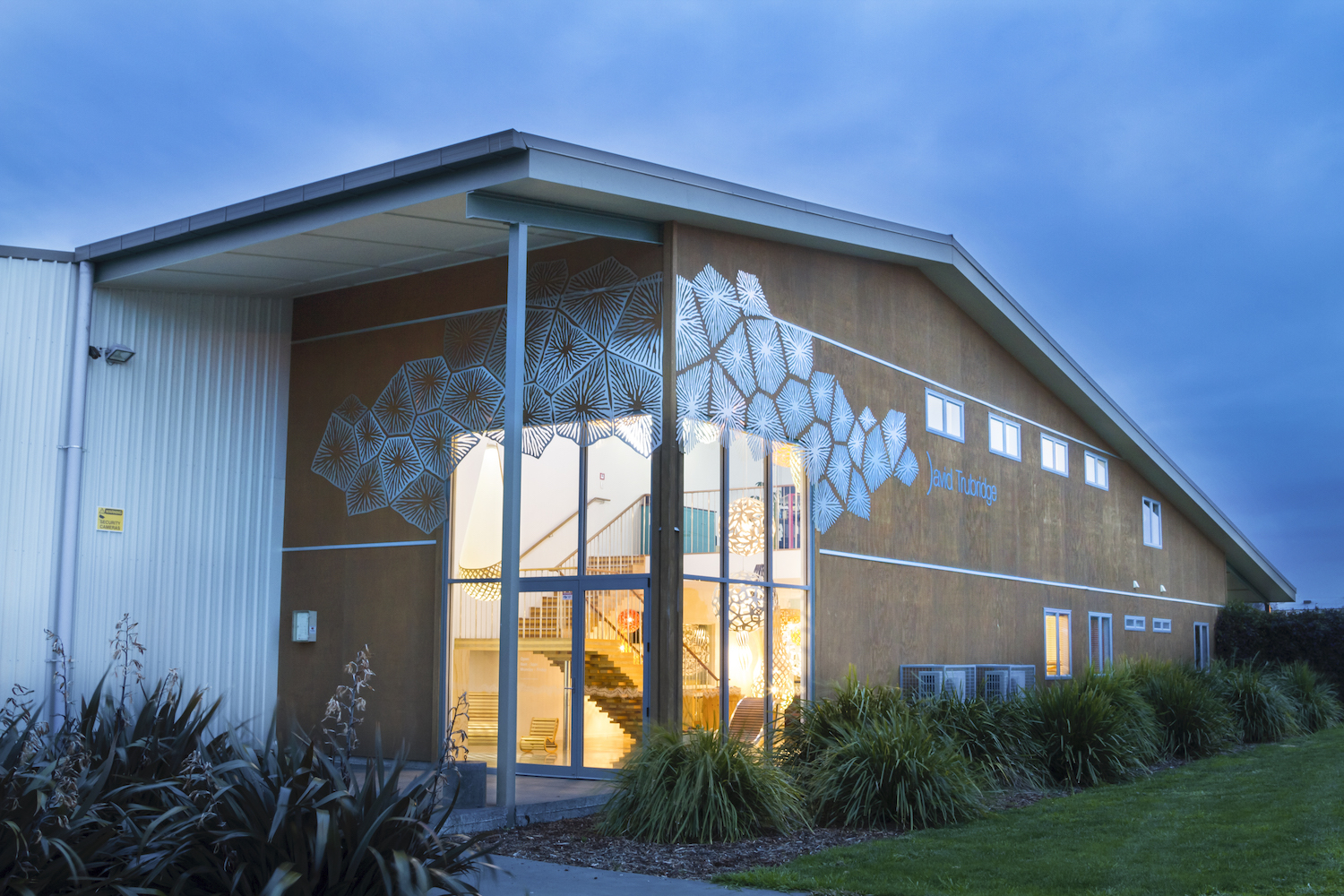
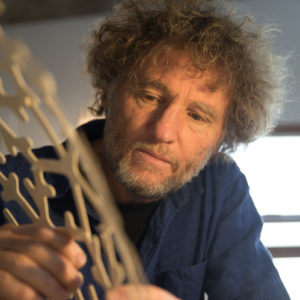
“There is no better place to learn about what it takes to become a good designer or how to run a design studio than working in one. David wanted to not only produce enriching products but employ happy people, paying them fairly for their skills and allowing them to nurture themselves and their families. This attitude has proven to be a good one, with over half the workforce staying on after ten years. It is a happy place to work, a beautiful building and great little town to be located in.”
-Ben Pearce, David Trubridge Design Studio
Luminosa
Luminosa™ is based in San Miguel de Allende Mexico, a picturesque colonial town in Central Mexico. Surrounded by the traditions and culture of hand-made craftsmen – it only makes sense that Luminosa light fixtures employ the talents and skills of the local tradespeople.
An inventive, adaptive and industrious community, Luminosa is also an equal opportunity employer that actively embraces individuals who may not fit the traditional employment paradigm. This includes persons with mobility issues and learning challenges as well as others who need greater flexibility – including rural workers, single mothers and older workers, who often bring exceptional wisdom, experience and time-honored traditions that are deeply embedded in Mexican culture.
“My approach to design is very much collaborative, I enjoy the direct interaction with my team but also with external artisans and designers. It's inspiring to see the depth of artisanal skill and pride here in Mexico.”
-Jonathan Baskett, Founder Luminosa
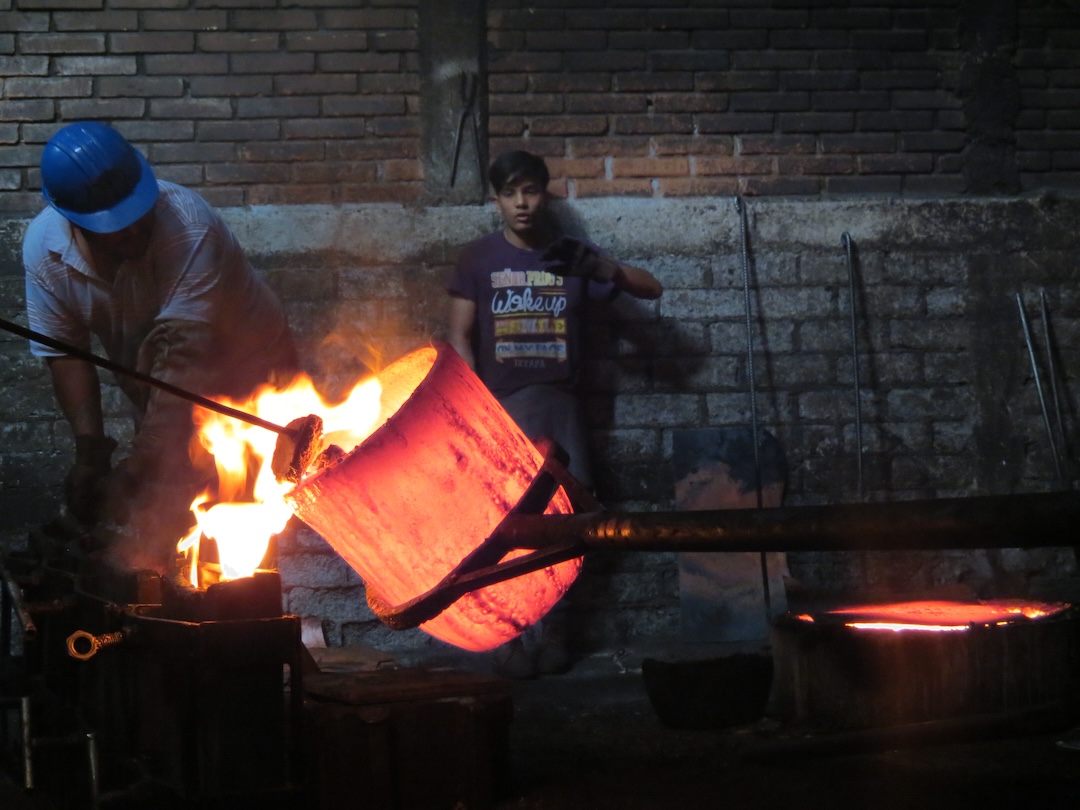
SUSTAINABILITY
More than a trend, it’s becoming the norm. Endurance and longevity have steadily been a concern and have received increased attention in residential housing design, large space buildings, malls, hotels, and airports internationally.
This challenges our ‘disposable culture’ i.e. fast fashion makes shopping for clothes more affordable, but it comes at an environmental cost with no regard for the land/landfill. There is research that says “The fashion industry produces 10% of all humanity’s carbon emissions, (which) is the second-largest consumer of the world’s water supply, and pollutes the oceans with microplastics.”* via Business Insider
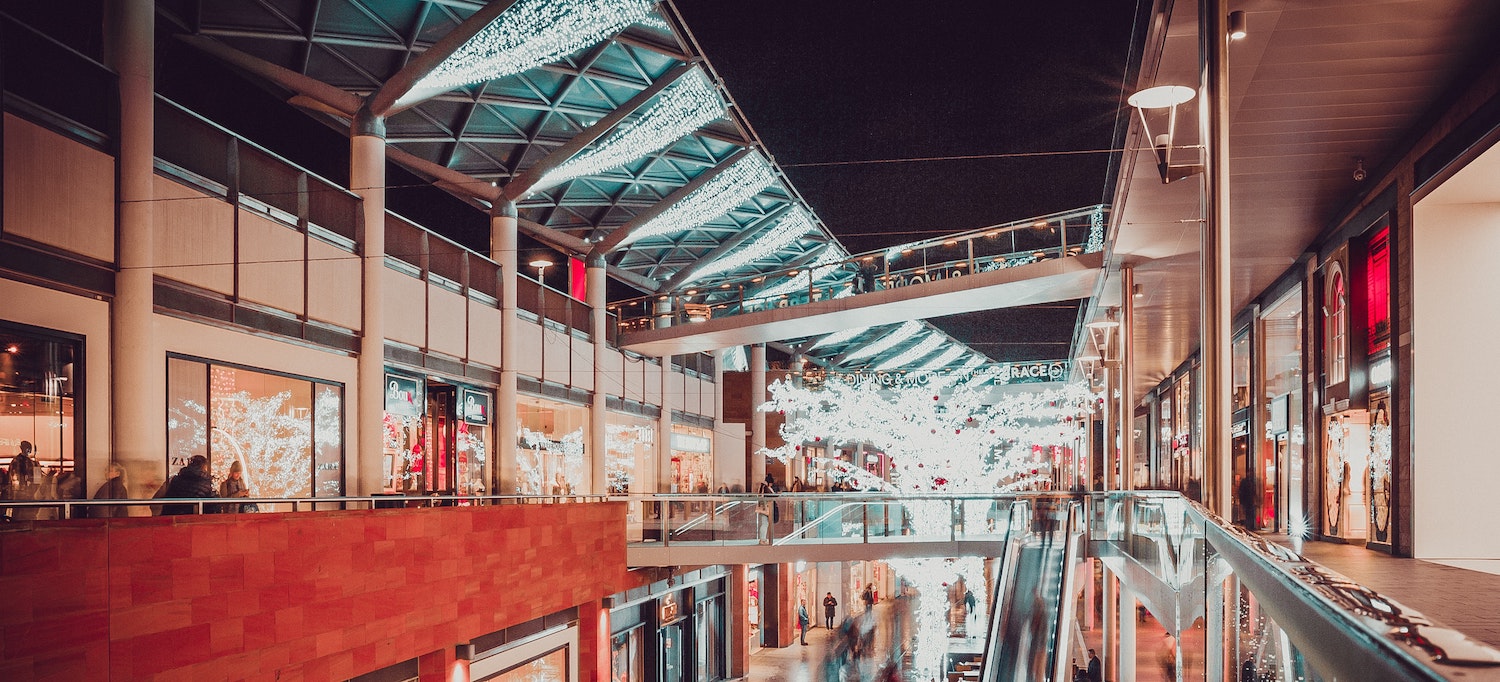
And while fast fashion isn’t going away anytime soon, there’s another movement, a moral one, which gives a rationale for spending. Take PATAGONIA for example– Here’s a company one has a “feel good” response spending money with.
“Patagonia is taking impressive action to reduce its environmental impact. All of its cotton is certified organic by the Global Organic Textile Standard (GOTS), and it is bluesign® certified for some of its fabrics. A high proportion of its materials are made from recycled fabrics, including its polyester, nylon, and wool. Patagonia belongs to both the Sustainable Apparel Coalition and 1% For The Planet. It rejects fast fashion by creating high-quality, long-lasting products, and offers a repair and reuse program.”
- from GoodOnYou.eco

“Patagonia is taking impressive action to reduce its environmental impact. All of its cotton is certified organic by the Global Organic Textile Standard (GOTS), and it is bluesign® certified for some of its fabrics. A high proportion of its materials are made from recycled fabrics, including its polyester, nylon, and wool. Patagonia belongs to both the Sustainable Apparel Coalition and 1% For The Planet. It rejects fast fashion by creating high-quality, long-lasting products, and offers a repair and reuse program.”
- from GoodOnYou.eco

This “Ethical Marketing” isn’t a strategy; it’s a philosophy. According to a WordStream Blog addressing Ethical Marketing by Dan Shewan, he questions the data: “(Are) 92% of millennial consumers are more likely to buy products from ethical companies? Or that 82% of those consumers believe ethical brands outperform similar companies that lack a commitment to ethical principles?”
Increased focus on environmental awareness and ethical manufacturing processes is a welcome change, to be sure. Yet despite the increased costs associated with environmentally-sustainable business models, consumers’ willingness to pay the extra fee ensures a continued uptick in the practice – a practice that wakaNINE is committed to as well.
MATERIALS AND SHIPPING
wakaNINE’s lighting lines all use innovative sustainable materials –either upcycled or naturally sourced.
David Trubridge Designs
David Trubridge Designs has moved from plastic to using sustainably grown bamboo. Many products have been redesigned to eliminate plastic completely, such as the recent releases of Cloud and Ebb.
David himself has coined the “kit-set”, a flat packing shipping method that is easier to ship internationally and reduces freight impact on the environment. Something you build yourself is more likely to stick around, and not end up replaced by a cheaper item, or thrown away.
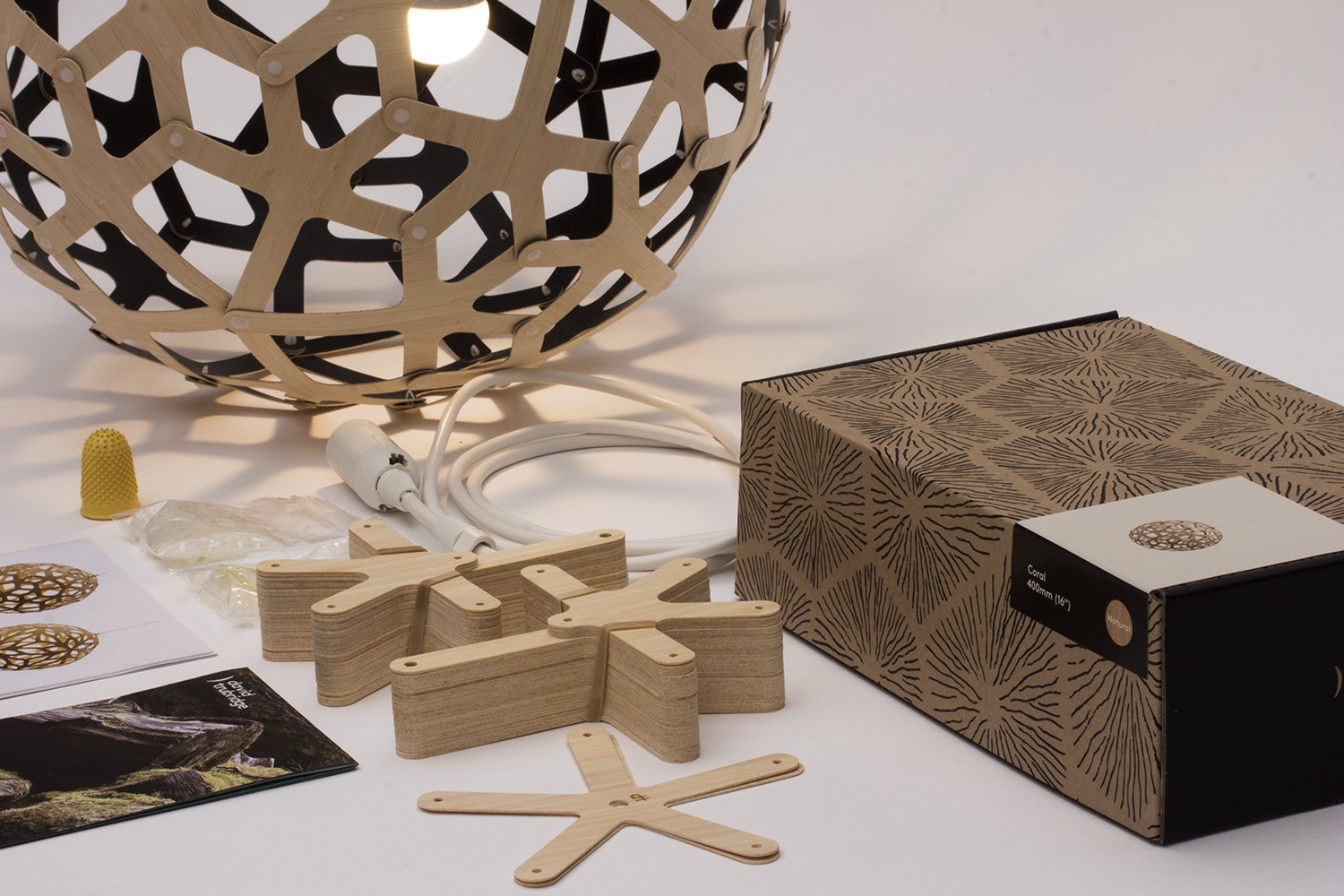
PLN Group - HUSH Lighting
PLN Group’s primary materials are post-consumer waste, recycled water bottles- keeping trash out of landfills. The popular HUSH acoustic lights are made from PET (polyethylene terephthalate,) plastic bottle flakes. This Autex Material in the Declare database which is a materials transparency platform and product database that is changing the materials marketplace. PLN also uses flat-packed shipping which saves freight pollution.
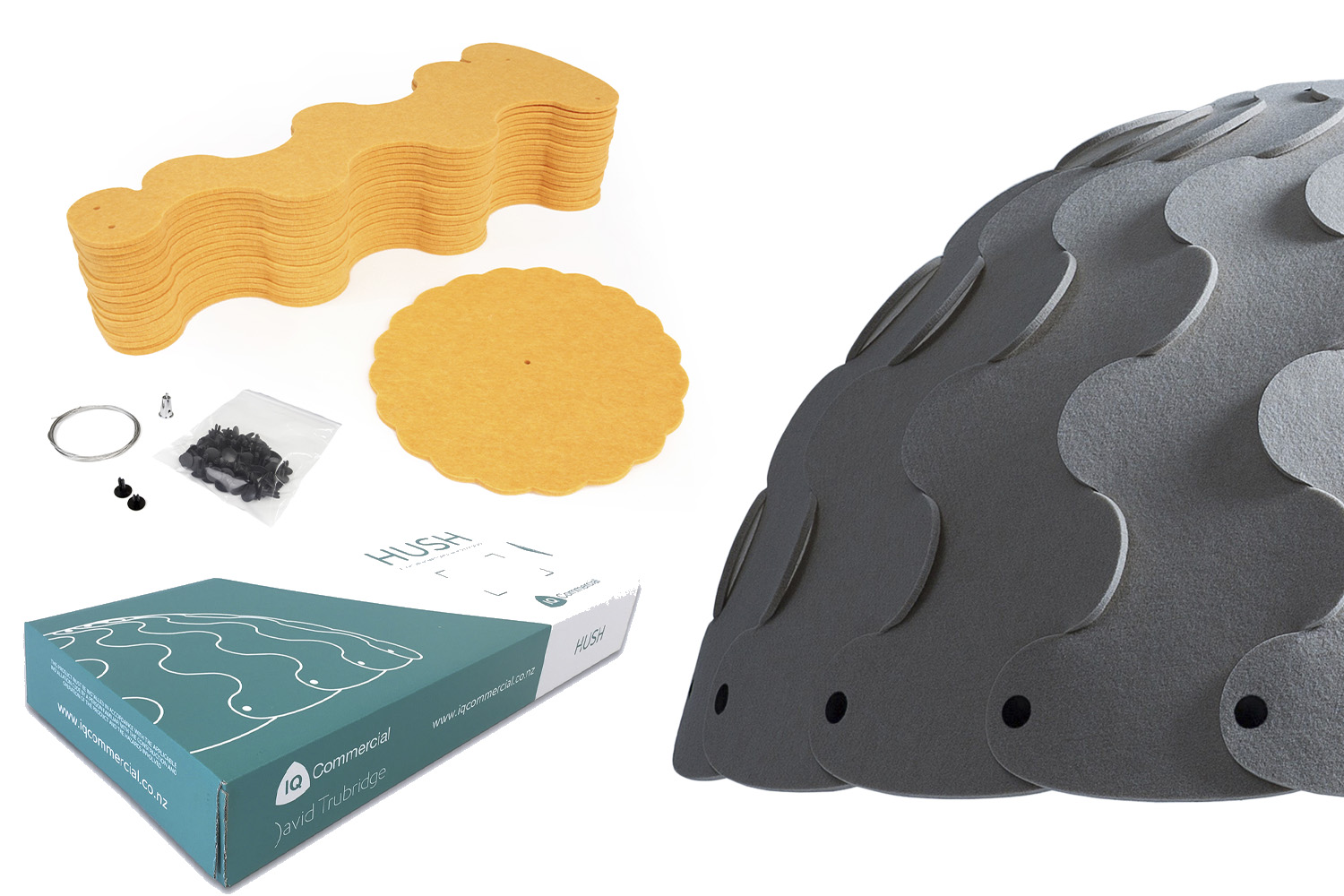
Stephen Pikus
Stephen Pikus’s upcycled glass and diesel truck air filters are transformed into unique statement fixtures. These materials otherwise end up in landfills, as South Africa is still developing recycling ordinances.
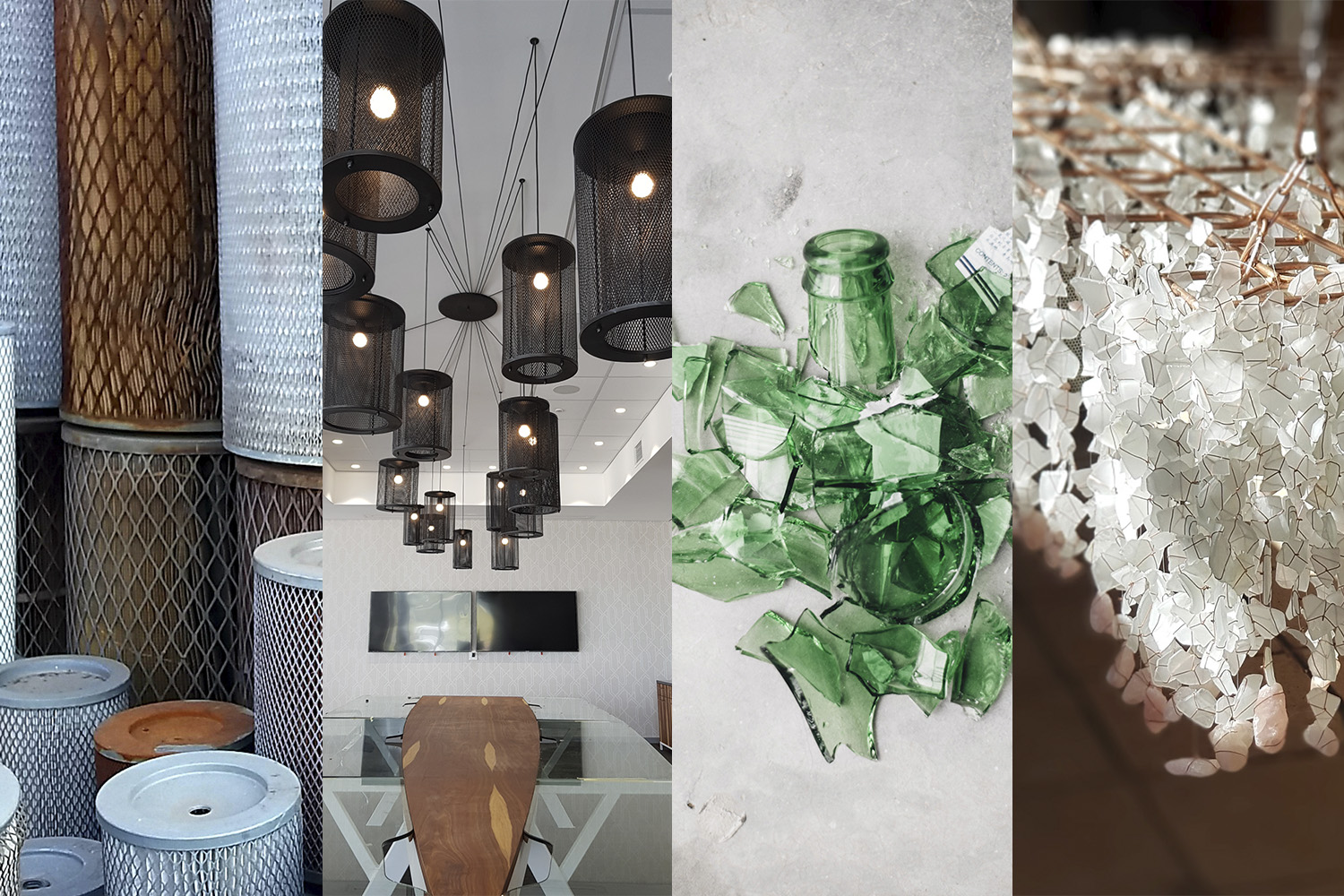
Luminosa
Luminosa uses a variety of materials to create their light fixtures including molten glass, hand-beaten recycled copper and cast ceramic. These hand-crafted lights result in a collection that delivers a unique and yet familiar warmth to any space. Ethically sourced, hand-made, and suitable for residential, commercial, and hospitality projects – a true triple-threat.
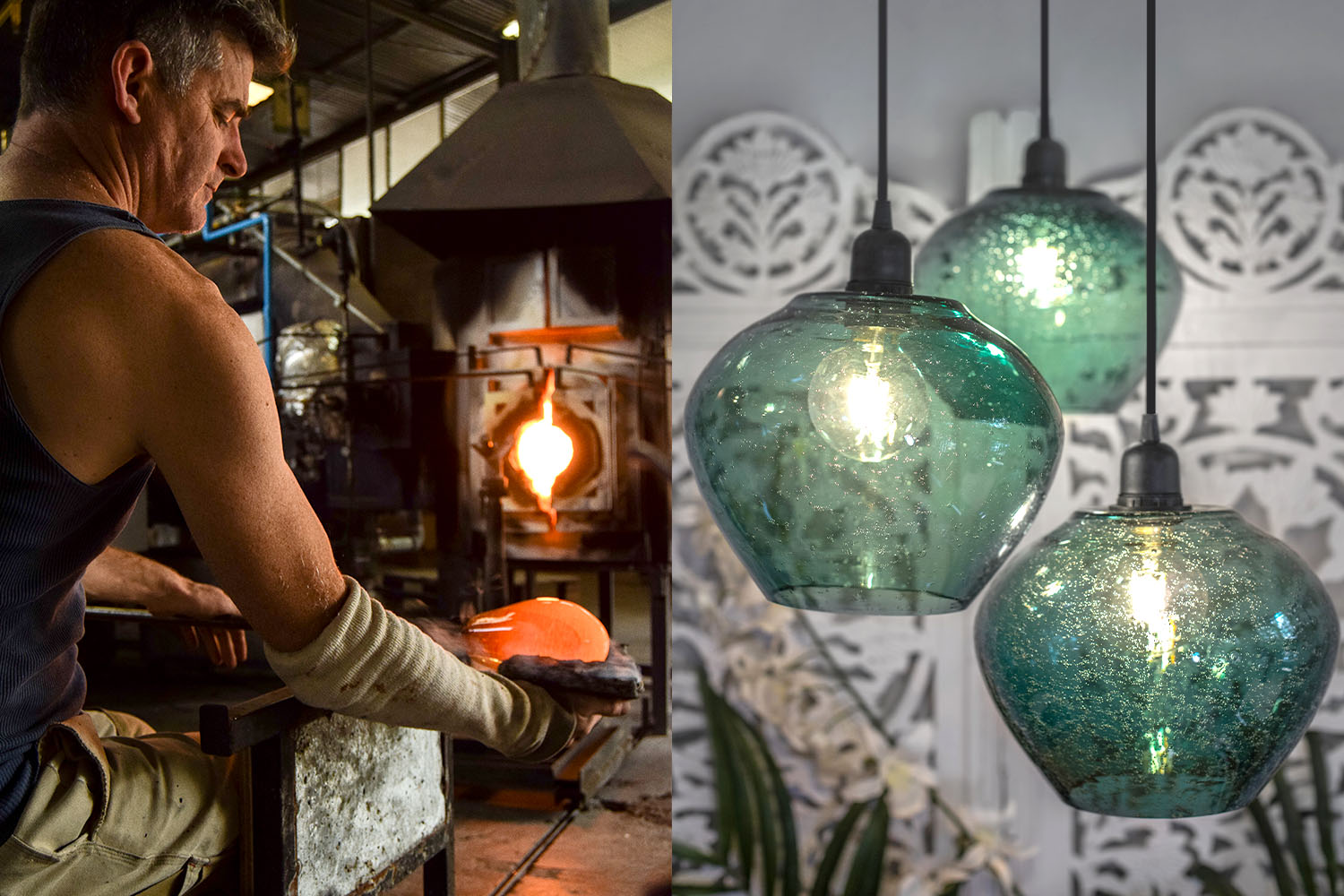
The wakaNINE lighting lines have proven their commitment to ethical labor and manufacturing processes, as well as why championing good causes. It has proven effective for these brands.
THE WELL BUILDING STANDARD
wakaNINE lighting contributes to better design practices and is proud to offer fixtures that qualify for the WELL Building Standard and Living Building Challenge projects – the premier standards for buildings, interior spaces and communities seeking to implement, validate and measure features that support and advance human health and wellness.

THE WAKANINE MISSION
wakaNINE is aware of the appetite for sustainability which shifts priorities in consumerism. We are collectively raising our consumer awareness by seeking out enduring characteristics and focusing not only on how these products benefit customers, but also how they benefit socially responsible or environmental causes.
Interested in using sustainable lighting practices in your home?
Envisioning any of these fixtures in your next Trade Project?

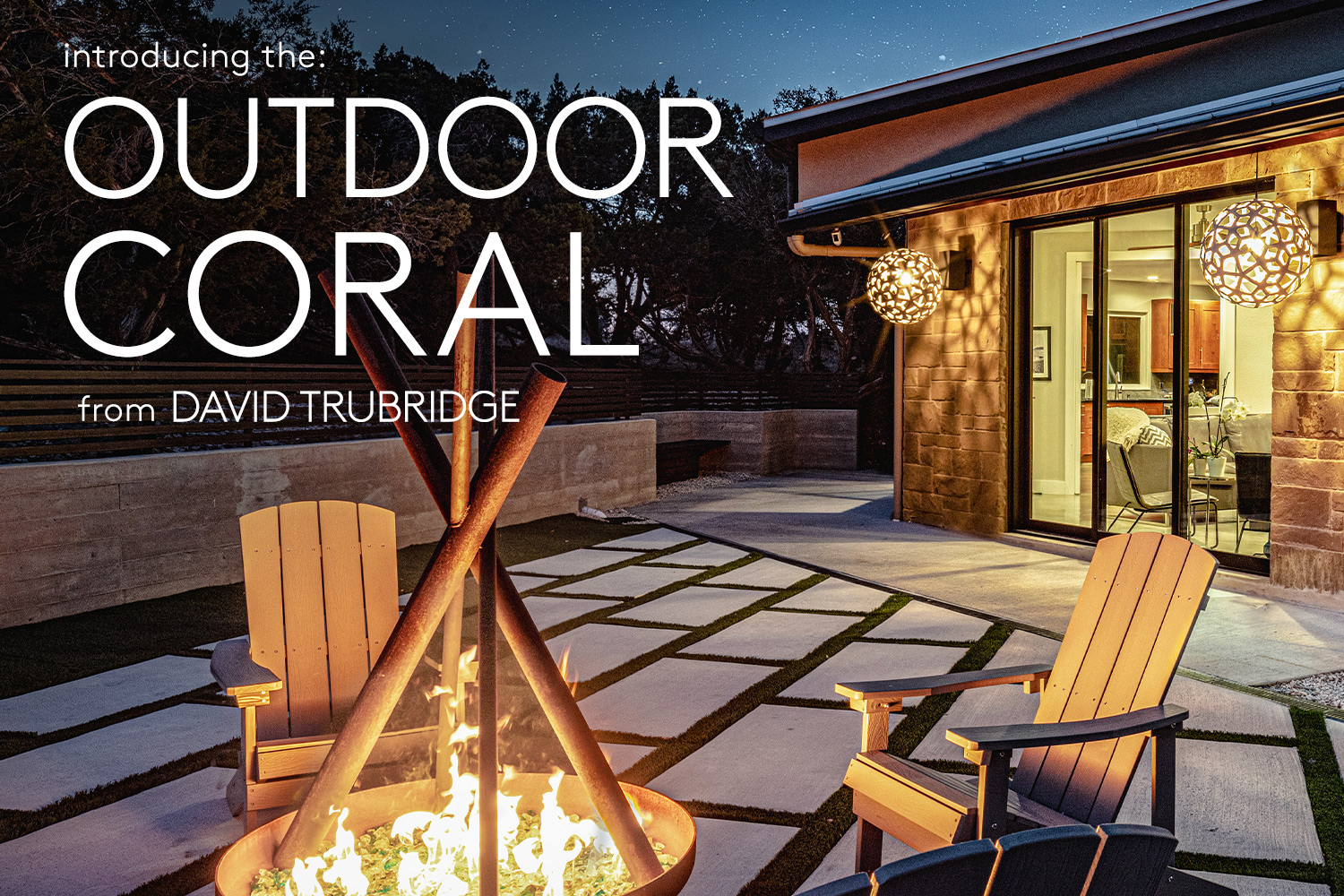
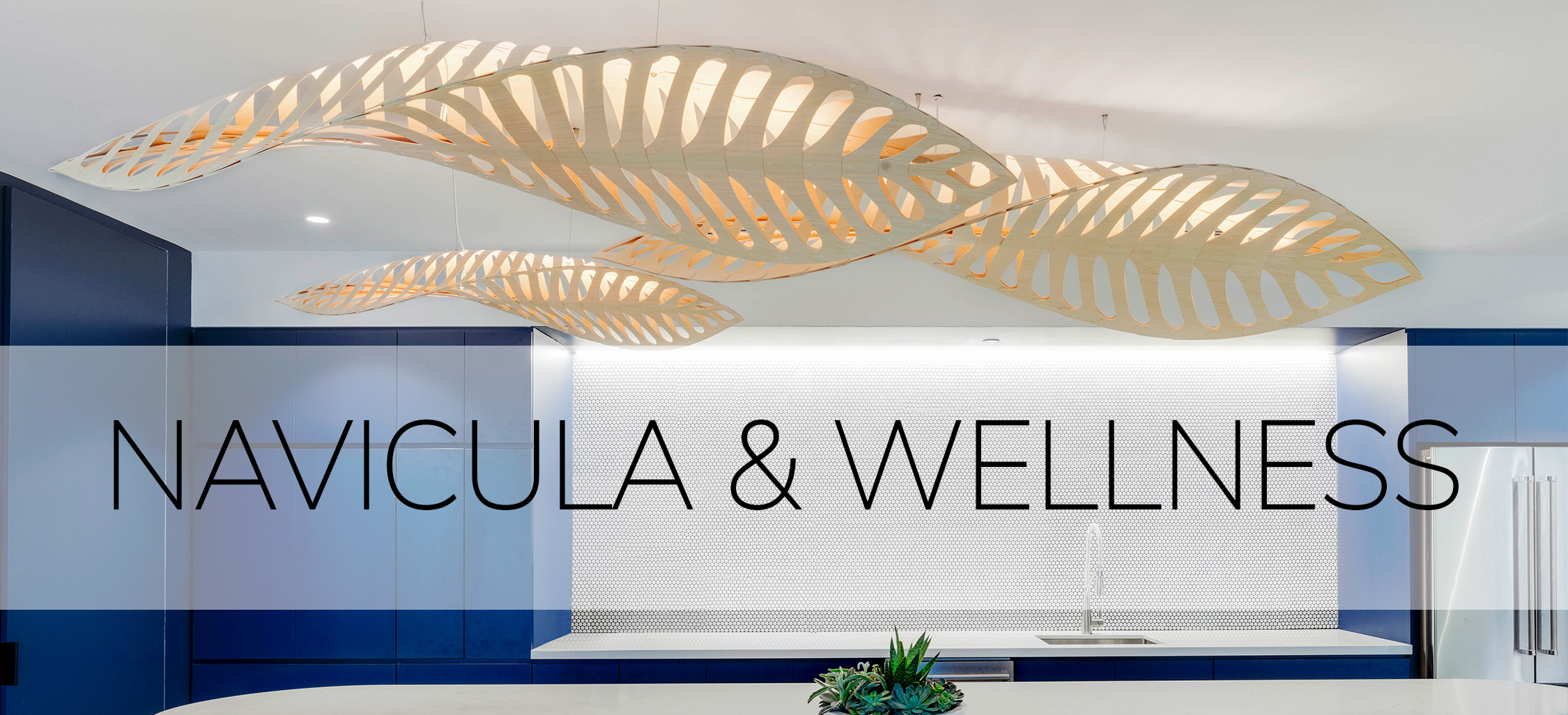

This Post Has 0 Comments